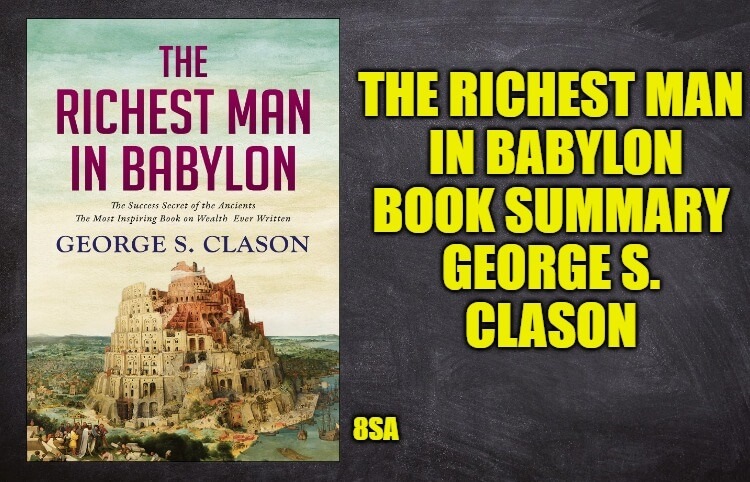What is the summary of the book The Richest Man in Babylon written by George S. Clason? Information about the summary, review and analysis of The Richest Man in Babylon.

The Richest Man in Babylon
“The Richest Man in Babylon” is a classic personal finance book written by George S. Clason, first published in 1926. The book uses parables and storytelling to teach timeless principles of personal finance and wealth creation.
The book’s main theme is the importance of taking control of one’s finances and making sound financial decisions to achieve wealth and financial freedom. Through a series of stories set in ancient Babylon, the book teaches readers about the basic principles of personal finance, including saving, investing, budgeting, and wise use of credit.
Some of the key lessons from the book include:
- Pay yourself first – save at least 10% of your income before spending it.
- Invest your money wisely – seek advice from experts and diversify your portfolio.
- Control your expenses – live below your means and avoid unnecessary spending.
- Avoid debt – if you must borrow, do so only for investments that will generate income.
- Increase your earning potential – seek opportunities to improve your skills and knowledge.
Overall, “The Richest Man in Babylon” is a timeless classic that has helped countless readers achieve financial success and freedom. Its lessons are still relevant today, nearly a century after it was first published, and it remains a must-read for anyone seeking to improve their personal finances.
Book Summary
“The Richest Man in Babylon” is a personal finance book written by George S. Clason that teaches the principles of wealth creation through parables and storytelling set in ancient Babylon. The book was first published in 1926 and has since become a classic in the field of personal finance.
The book is divided into a series of stories that illustrate the basic principles of personal finance, including saving, investing, budgeting, and wise use of credit. The stories are set in ancient Babylon, a city known for its wealth and prosperity. The characters in the stories are merchants, farmers, and other common people who face financial challenges and learn important lessons about personal finance.
One of the key principles that the book teaches is the importance of paying oneself first. In the story of Arkad, the richest man in Babylon, he advises his friends to save at least 10% of their income before spending it on anything else. This simple principle, known as “pay yourself first,” is still widely recommended by financial experts today.
Another important lesson from the book is the value of investing wisely. Arkad teaches his friends about the power of compound interest and the importance of diversifying their investments. He advises them to seek advice from experts and to invest their money in a variety of assets, including stocks, real estate, and precious metals.
The book also emphasizes the importance of controlling one’s expenses. In the story of Bansir and Kobbi, two merchants who struggle to make ends meet, they learn the importance of living below their means and avoiding unnecessary spending. They also learn the value of budgeting and keeping track of their expenses.
The book also warns against the dangers of debt. Arkad advises his friends to avoid borrowing money unless it is for investments that will generate income. He also emphasizes the importance of paying off debts as quickly as possible to avoid paying unnecessary interest.
Finally, the book teaches the importance of increasing one’s earning potential. In the story of Dabasir, a poor scribe who dreams of becoming wealthy, he learns that the key to success is to seek opportunities to improve his skills and knowledge. He studies with a master of finance and learns the principles of investing and wealth creation.
Overall, “The Richest Man in Babylon” is a timeless classic that has helped countless readers achieve financial success and freedom. Its principles are still relevant today, nearly a century after it was first published. The book’s stories and parables make it an enjoyable and accessible read, while its lessons are valuable for anyone seeking to improve their personal finances.